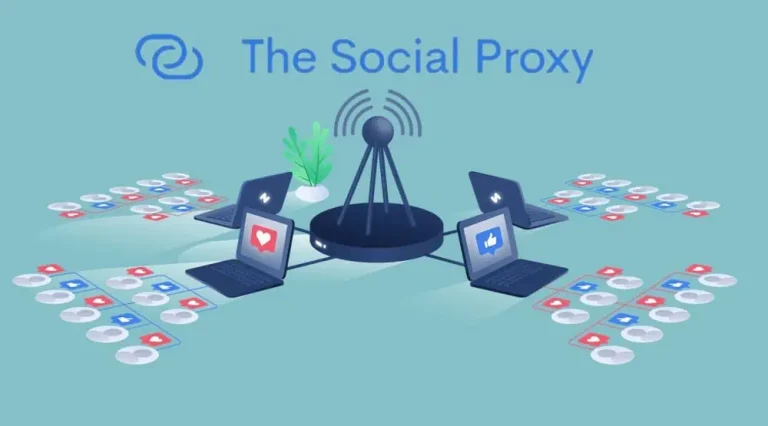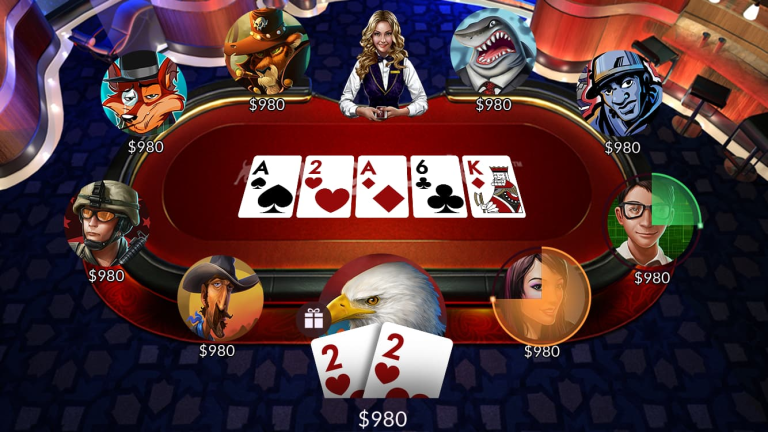The Positive Impact of Multiplayer Games on Social Skills
In today’s digital age, gaming has evolved far beyond a solitary experience. Multiplayer games have emerged as one of the most popular forms of entertainment, bringing together millions of people worldwide. Whether you’re jumping into an intense game of poker or enjoying a thrilling idn slot 777 game, these interactive experiences often lead to more than just a victory or a loss on the screen. Many studies have shown that multiplayer games are capable of fostering strong social skills, teamwork, and communication, all of which are essential in both personal and professional life.
But can video games really enhance one’s social abilities? The answer might surprise you. While gaming often carries a reputation for isolating players, multiplayer formats promote collaboration, strategic thinking, and connection with others in ways that traditional solo gaming can’t match.
In this article, we’ll explore how multiplayer games improve social skills, highlighting both the positive and unexpected outcomes that players experience. By the end of this piece, you’ll see why engaging in multiplayer games might just be the social workout you didn’t know you needed!
1. Multiplayer Games as a Social Platform
Multiplayer games provide an incredible platform for meeting people. Unlike traditional video games where players are often alone, multiplayer games allow players to interact with others from across the globe. In a world where many people struggle to find social connections, these games create a space for new friendships and long-lasting bonds.
Whether you’re playing a casual poker game with a friend or diving into a massive online role-playing game with strangers, the ability to connect with others is at the heart of multiplayer gaming. The variety of experiences shared between players strengthens the social aspects of these games.
2. Building Communication Skills Through Gameplay
One of the primary social benefits of multiplayer games is their ability to foster communication. Whether it’s in a fast-paced battle game or a strategy-heavy slot qq online game, communication is key to success. Players need to discuss strategies, offer encouragement, or work together to solve in-game challenges.
For example, in a multiplayer poker game, players often need to convey subtle hints, read the emotions of others, and adjust their strategies based on how others communicate. It’s not just about the cards on the table—it’s about how players work together (or against each other) to achieve their goals. Effective communication in these games translates directly to real-world social interactions, especially in high-pressure environments.
3. Strengthening Teamwork and Collaboration
Another significant benefit of multiplayer games is the emphasis on teamwork and collaboration. In many multiplayer titles, players are grouped into teams with a common goal. Working together toward a shared objective teaches players the importance of coordination, patience, and mutual support.
Whether you’re part of a small team or an entire guild, cooperating to win creates a unique bond between players. Through shared victories and defeats, players learn to trust one another, delegate responsibilities, and adapt to various roles, much like in a real-life team environment.
4. Learning Conflict Resolution in a Virtual World
Conflict is inevitable in multiplayer games, especially when there’s a lot on the line. However, it’s how these conflicts are handled that shapes players’ social development. In a game like poker, for instance, players must deal with losing hands, unexpected moves, and occasionally, even poor sportsmanship.
These situations offer excellent opportunities for players to learn how to handle disagreements or losses gracefully. Instead of avoiding conflict, multiplayer games encourage players to face challenges head-on, teaching them to manage their emotions and resolve disputes in a constructive way.
5. Enhancing Empathy and Emotional Intelligence
Multiplayer games can help develop empathy by putting players in the shoes of others. When playing with a group, understanding different perspectives becomes crucial for smooth gameplay. Whether you’re playing an immersive role-playing game or trying to outsmart your opponent in poker, seeing the world through someone else’s eyes is an essential part of the experience.
Players learn how to gauge emotions, recognize body language (in games with live voice or video chat features), and respond to the feelings of others in a way that fosters a supportive gaming environment. This emotional awareness is a cornerstone of emotional intelligence, which benefits social interactions both inside and outside of the game.
6. Developing Patience and Self-Control
Patience is key in multiplayer games, especially in strategy-heavy ones like poker games, where every move counts. Unlike single-player games that move at your own pace, multiplayer games require players to adapt to the speed and rhythm of others. Whether you’re waiting for your turn or strategizing on the fly, these experiences help build self-discipline and the ability to remain calm under pressure.
Moreover, when playing with others, players often have to wait for their teammates to make decisions, forcing them to practice patience and manage their expectations. This skill is incredibly beneficial in the real world, where patience often leads to better outcomes in both professional and personal settings.
7. Socializing Across Cultures and Backgrounds
One of the most unique aspects of multiplayer games is the opportunity to interact with people from different cultures, countries, and backgrounds. A slot game may seem simple at first glance, but when you’re playing with others worldwide, you get a taste of global diversity. This exposure helps break down cultural barriers and promotes an appreciation for different viewpoints and experiences.
By engaging with people from all walks of life, players develop a broader understanding of the world. This social interaction across cultural lines is invaluable in today’s interconnected society, where cross-cultural communication is often a key to success in the workplace and beyond.
8. Boosting Confidence and Self-Esteem
Multiplayer games provide a platform for players to achieve success in a way that can boost their confidence. Whether it’s winning a tournament or achieving a difficult in-game task, multiplayer games reward players with recognition, both from their teammates and the broader community.
Achieving success in a multiplayer environment fosters a sense of accomplishment, helping to build self-esteem. This sense of achievement can carry over into real-world social situations, where players might feel more confident in their ability to navigate social interactions and handle new challenges.
9. The Role of Multiplayer Games in Overcoming Social Anxiety
For individuals with social anxiety, multiplayer games can serve as a bridge to real-life social situations. The anonymity of the virtual world provides a less intimidating environment to practice social interactions, particularly for shy individuals who may find face-to-face communication daunting.
Through these games, players can engage in meaningful conversations, join communities, and build friendships that may carry over to their real-world social lives. Multiplayer games offer a controlled environment where individuals can improve their social skills at their own pace, without the pressure of in-person interactions.
10. Multiplayer Games and Their Impact on Career Skills
It’s not just about fun and games; multiplayer gaming can also develop essential skills that translate directly into the workplace. Whether you’re a manager, an entrepreneur, or a part of a team, the skills learned through multiplayer games—like leadership, decision-making, and problem-solving—are highly valuable in any professional setting.
In a poker game, for example, players must calculate risk, adapt to new information, and read the situation to make decisions. These are all important skills that can be applied in high-stakes business environments.
Conclusion: The Lasting Impact of Multiplayer Games on Social Development
The evidence is clear: multiplayer games are more than just a source of entertainment. They are a tool for social development, helping individuals strengthen communication, teamwork, empathy, and emotional intelligence. Whether you’re playing a strategic slot game or engaging in a poker match, the skills honed in these virtual worlds are crucial for navigating the complexities of real-world social interactions.
In today’s interconnected world, multiplayer games not only offer fun and excitement but also provide valuable lessons in collaboration and personal growth. So next time you log in for a game, remember—you’re not just playing for a high score; you’re building skills that will last a lifetime.





